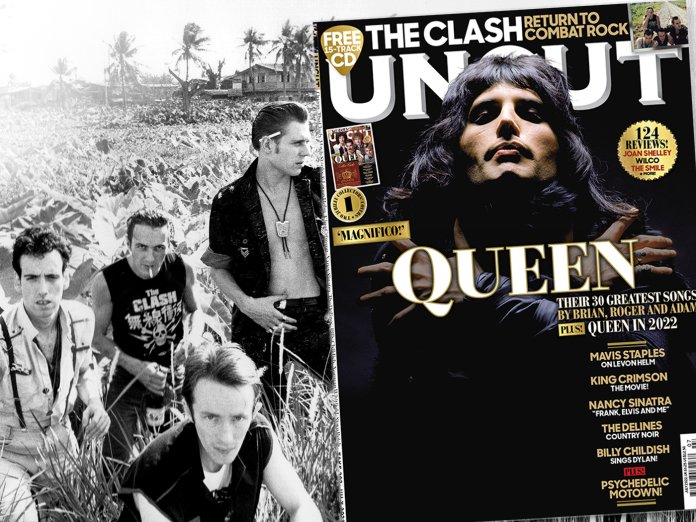For The Clash, the question in 1982 was: where next? 1980’s Sandinista! had covered a lot of ground across its six sprawling sides. Now, as sessions for The Clash’s fifth studio album moved from London to New York’s Electric Lady studio in November 1981, their recently reappointed manager Bernie Rhodes anticipated a return to straight-ahead rock’n’roll. He couldn’t have been more wrong. Covering dub, funk and hip-hop, and with guest spots from Allen Ginsberg and NY graffiti artist Futura 2000, Combat Rock was almost as diverse as its predecessor. “The city found its way into the music,” says singer Ellen Foley, who was also Jones’ partner at the time. Mixed by Glyn Johns back in the UK, singles “Rock The Casbah” and “Should I Stay Or Should I Go” were punched up for maximum chart impact.
Nevertheless, Combat Rock arrived in shops on May 14, 1982 to a mixed reception. “In England people were like, ‘Oh fuck, The Clash have sold out’ – which was ridiculous,” says filmmaker Don Letts. “In America, they were going from strength to strength.” Yet despite the album’s ambitious mix of styles, all was not well within the band. “They were falling apart,” admits Letts. “Musical differences were happening. As demonstrated by Mick Jones’ original Combat Rock mix [Rat Patrol From Fort Bragg]. I’ve still got the C90. It was more dance-orientated.” Topper Headon had been sacked just days before the album was released, owing to his escalating heroin habit, replaced on the band’s upcoming tour by original drummer Terry Chimes. “Topper was the fucking rock,” says Letts. “Once Topper was gone, there was no proper foundation.”
As the title suggests, conflict was rife – and not just within the band. Combat Rock was released during the Falklands War. This gave many of Strummer’s songs an additional urgency. “They feel like you’re a war correspondent on the front line – or postcards from the edge,” says The Pop Group’s Mark Stewart.
“Rock The Casbah” reached No 8 in America, as the band embarked on a stadium tour supporting The Who. “Paul Simonon said to me right at the beginning, ‘If I ever get any money, Mark, I want a waterproof telly that I can watch in the bath,’” says Stewart. “When Combat Rock broke through, I hoped Paul got that telly.”
Such celebrations were short-lived. By 1983, Mick Jones had been sacked; the original Clash were no more. But even today, Combat Rock sounds bullish and brilliant. “They’d flown off into orbit, gone through their prog phase with Sandinista!,” says Stewart. “Then they landed here. Knowing them, and what they were trying to do, this is the classic Clash album.”
“Forty years later,” adds Sex Pistol Paul Cook, “I think Combat Rock gets stronger as time goes on.”



